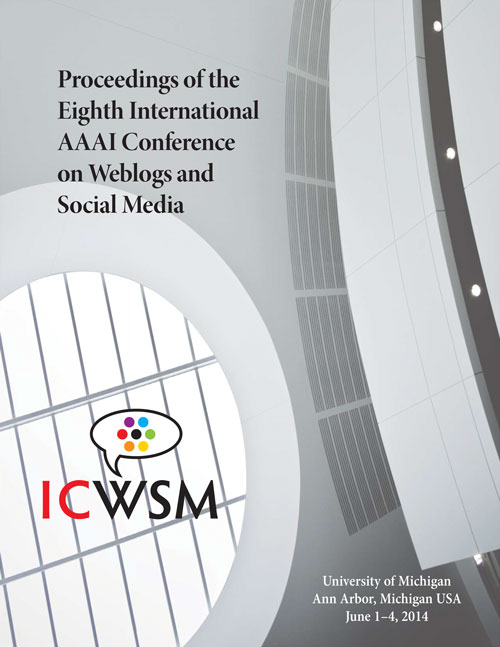"Our Grief is Unspeakable'': Automatically Measuring the Community Impact of a Tragedy
DOI:
https://doi.org/10.1609/icwsm.v8i1.14535Keywords:
Twitter, social media, traumatic eventsAbstract
Social media offer a real-time, unfiltered view of how disasters affect communities. Crisis response, disaster mental health, and — more broadly — public health can benefit from automated analysis of the public’s mental state as exhibited on social media. Our focus is on Twitter data from a community that lost members in a mass shooting and another community—geographically removed from the shooting — that was indirectly exposed. We show that a common approach for understanding emotional response in text: Linguistic Inquiry and Word Count (LIWC) can be substantially improved using machine learning. Starting with tweets flagged by LIWC as containing content related to the issue of death, we devise a categorization scheme for death-related tweets to induce automatic text classification of such content. This improved methodology reveals striking differences in the magnitude and duration of increases in death-related talk between these communities. It also detects subtle shifts in the nature of death-related talk. Our results offer lessons for gauging public response and for developing interventions in the wake of a tragedy.

